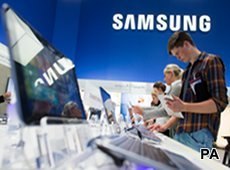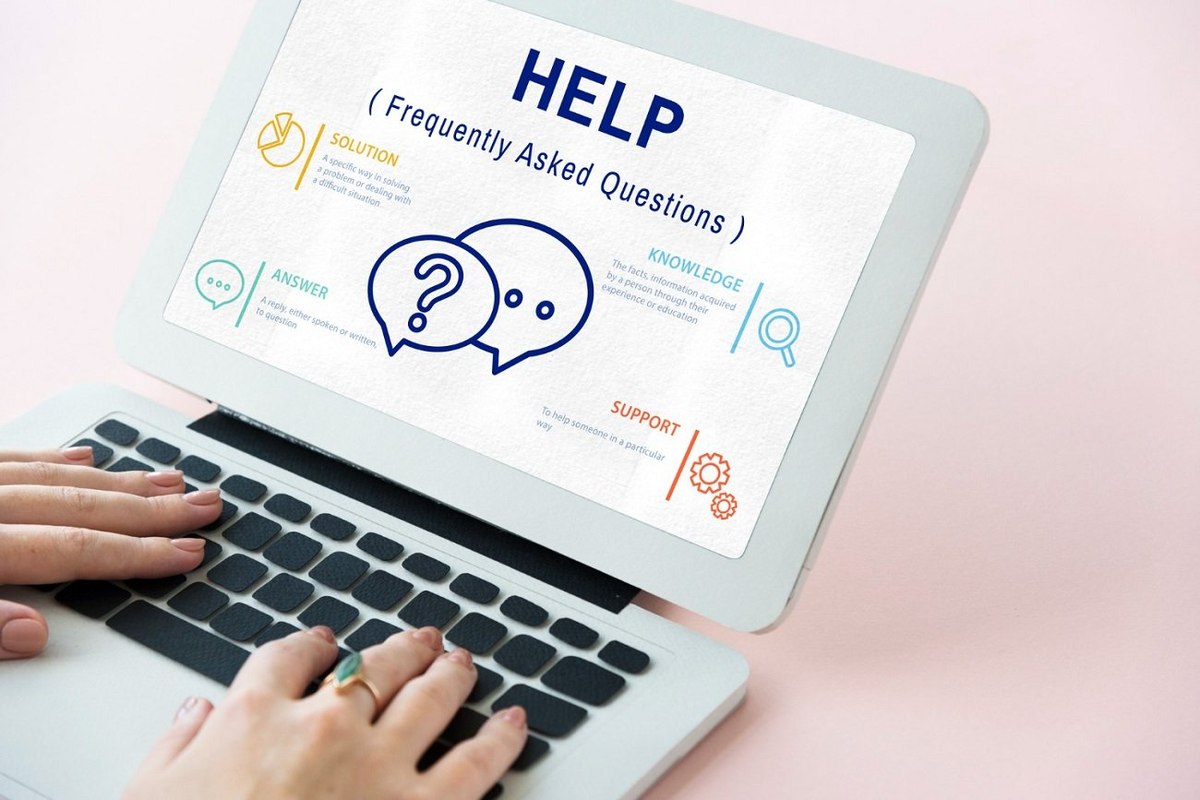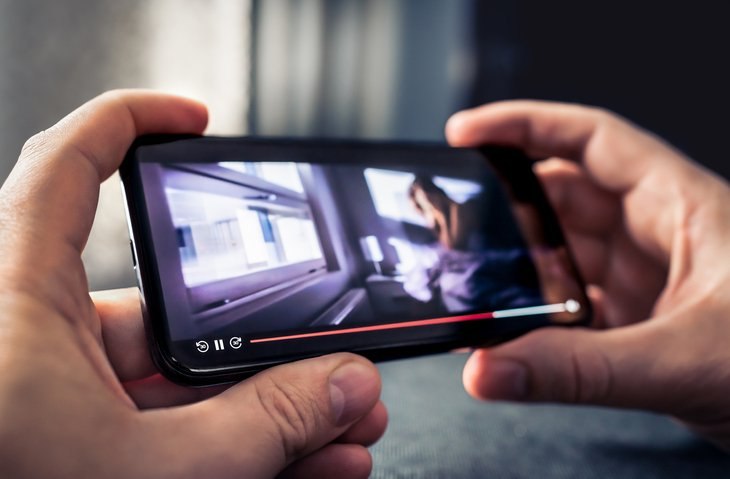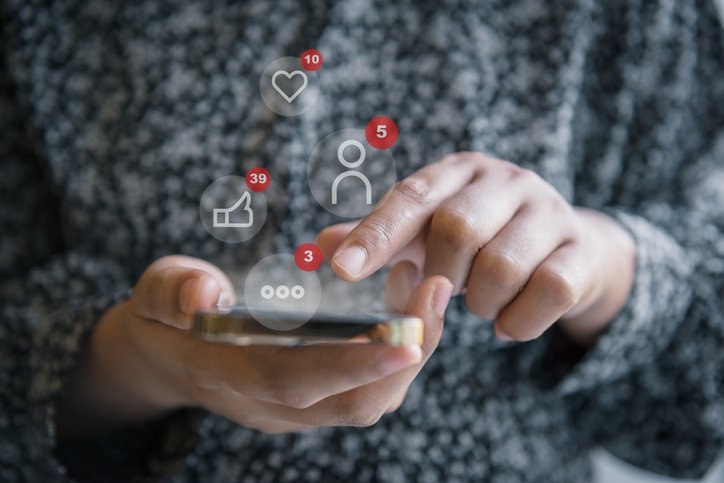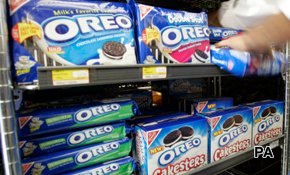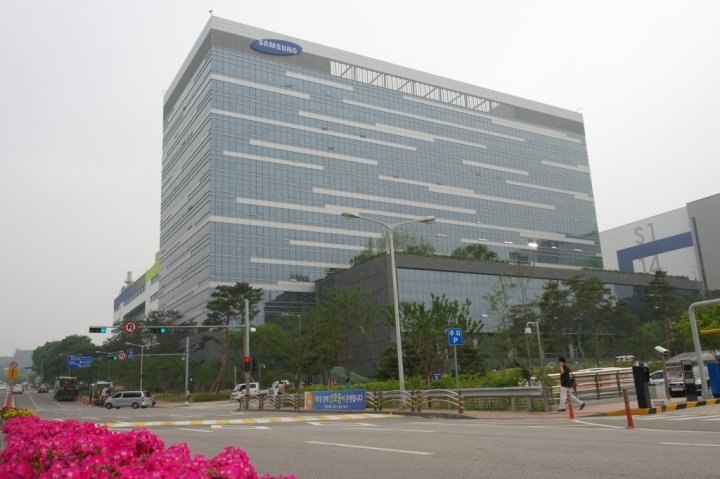
UK: Apple brand the Buzziest it's been in years
Apple’s brand health has reached a three-year-high, according to YouGov consumer data, as the firm begins shipments on its budget 5G-enabled iPhone SE, updated iPad Air, and all-new Mac Studio desktop computer.
Within a two weeks of Apple unveiling this latest slate of products, Apple’s UK Buzz score reached 11.8, a high-water mark for the brand in recent years.
A brand’s Buzz score is a net measure based on responses to two questions: “Over the past two weeks, which of the following brands have you heard something positive about?” and “Now which of the following brands have you heard something negative about?”. By calculating the difference between these two scores, we create our net Buzz metric.
Apple’s Buzz score began its most recent ascent in the week prior to its latest product event and continued to climb after.
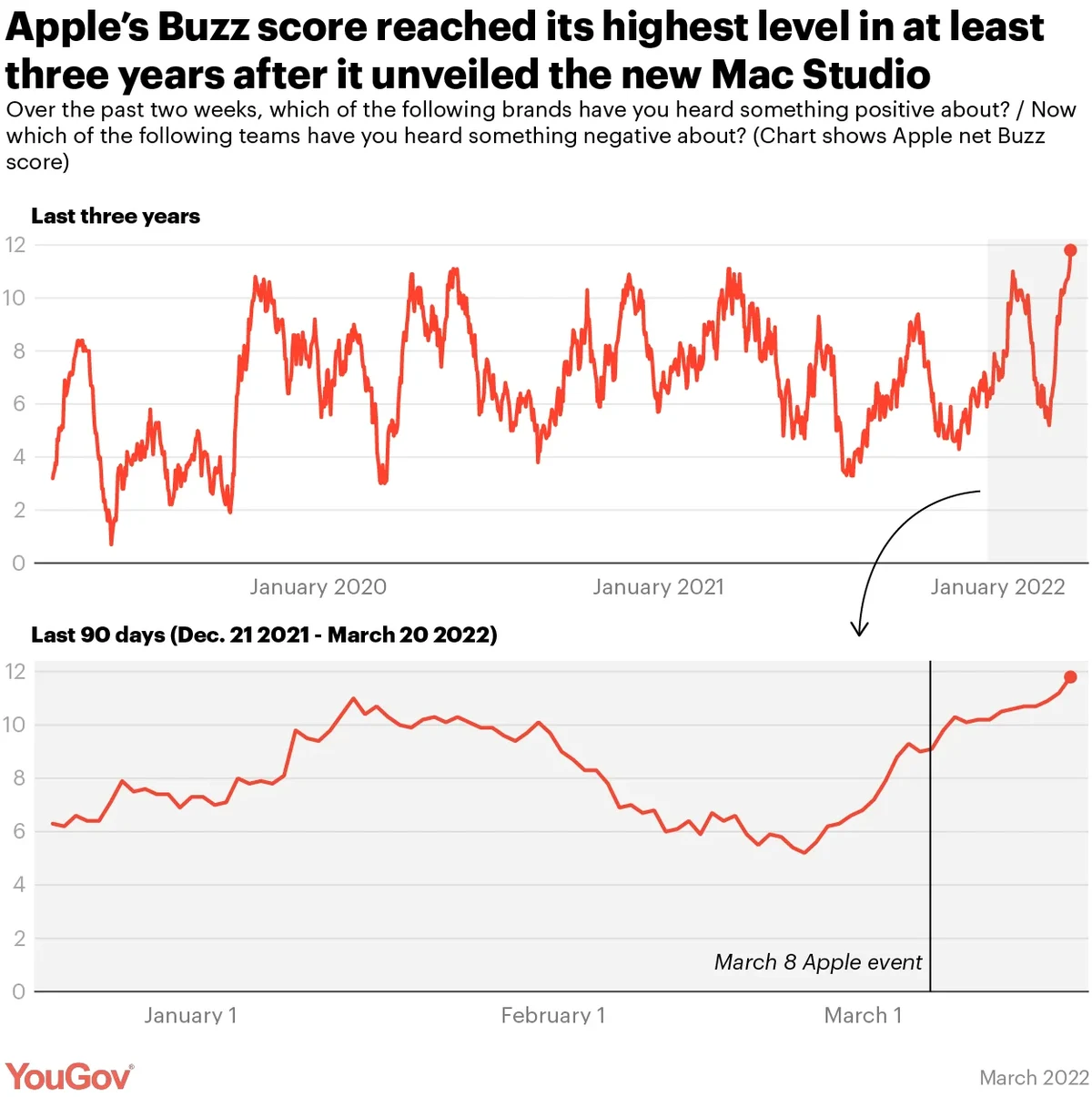
The Mac Studio desktop computer – and Mac Studio display – is the most newsworthy product to come out of the recent event. It boasts processing capabilities close to that of the top-of-the-line Mac Pro, but in a much smaller form factor.
Clearly geared at professionals, the computer ranges in price from £2,000 to £8,000. YouGov Profiles data reveals that Brits working in media, marketing, advertising, public relations and sales are most likely to have a positive Impression of the Mac brand (45%). Consumer data also shows those in hospitality & leisure (36%), and IT & telecoms (30%) are also likely to covet Apple’s Mac products.
Understated iPhone SE could have big impact on 5G adoption
While the Mac Studio was the headline of Apple’s latest product event, it also announced the next generation of the iPhone SE. The budget iPhone model now features 5G and starts at £419.
YouGov data clearly shows the gap in the market Apple is trying to fill. Just over a quarter of low-income Brits (those making less than 75% of the national median) currently own an Apple phone (28%), significantly less than the 41% of middle-income earners and 54% of high-income Brits.
The price of the standard iPhone has risen in recent years, further pushing it into the premium-device realm, but Apple’s low-cost iPhone is meant to bring more consumers into the ecosystem.
While the latest SE is not as powerful as its mainline iPhone cousin – and maintains the same design and many of the same specs as the previous SE version – the low-cost phone does include 5G capability, which will help turbocharge the world’s adoption of the next-generation network. YouGov data reveals 16% of low-income Brits say they’re unlikely to upgrade to 5G because of cost (vs. 13% of middle-income earners and 9% of high-income earners).
It’s worth noting that cost, a notable barrier to 5G for consumers, still isn’t the biggest hurdle. A general lack of interest in the next-gen network remains the top reason consumers aren’t likely to upgrade to 5G in the next year.
Receive monthly topical insights about the tech industry, straight to your inbox. Sign up today.
Discover more tech content here
Want to run your own research? Start building a survey now
Methodology: YouGov BrandIndex collects data on thousands of brands every day. Apple’s Buzz score is based on the questions: “Over the past two weeks, which of the following teams have you heard something positive about?” and “Now which of the following teams have you heard something negative about?” and delivered as a net score between –100 and +100. Scores are based on an average daily sample size of 987 British adults between March 21, 2019 and March 20, 2022. Figures are based on a four-week moving average. Learn more about BrandIndex.
Apple Mac Impression score is based on the question “Overall, of which of the following brands do you have a positive impression?” and delivered as a percentage. Results are based on a sample size of 2,808 British adults.
YouGov Profiles is based on continuously collected data and rolling surveys, rather than from a single limited questionnaire. Profiles data is nationally representative and weighted by age, gender, education, region, and race. Income data referenced is based on a sample size of 48,613 British adults. Learn more about Profiles.
Image: Apple








